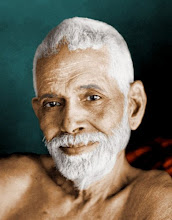"The adolescent is the one who wants to experience everything. The adult comes to realize that you can't experience everything. Mother Teresa never lost her faith, because she kept praying and going for spiritual direction. But she had to live by sheer faith--faith without a lot of consolation. But faith itself is consolation."I obtained the quote above from an article in the National Post. The man who spoke those words was Fr. Eric Jensen, a Jesuit priest and author and the director of Loyola House in Guelph, Ontario. He and the article as a whole appear to argue that we all must and do have faith in something, because it's impossible to know everything and to live without taking certain things on faith that we don't know; therefore, the theist's faith in, say, the Immaculate Conception and all that follows from it is fundamentally no less well-founded than is a physicist's faith in the existence of unseen quarks or your or my faith that there will be a tomorrow.
I spent years arguing about Christianity with Christians on the Internet, and examples of it can be found in this blog. But not long ago I came to the conclusion that I needed to learn a lot more about what I was arguing against if I was going to make the most cogent arguments possible, and, furthermore, I needed to be more circumspect about my motives for indulging in these arguments.
Having said that, I sorely doubt the soundness of the Christian argument that faith in the Immaculate Conception, unique divinity, and salvific crucifixion and resurrection of the historical Jesus is equivalent to faith in quarks or the dawning of tomorrow, even though I'm not yet and may never be fully prepared to explain why. At the moment, I will only say that it seems to me that quarks and the anticipation of a probable future are more consistent with an intermingling of broad experience and reason than is belief in Jesus Christ. The notion that the Supreme Being of the Universe would choose to reveal Itself to us and redeem us through the historical Jesus and expect us to assent, with the skeptical minds that he gave us, to this revelation upon pain of eternal torment if we don't continues to strike me as ludicrously inconsistent with my experience and with any reasonable understanding of Reality. Thus, my faith is not in religious claims per se, but in my capacity to evaluate the plausibility of those claims.
Thus, Christmas doesn't have the special meaning for me that it presumably does for most Christians. In fact, aside from being grateful to have the day off from work, it has no more special meaning for me than it does for my Buddhist wife and her relatives with whom we'll be spending this evening. Perhaps it would if I had kids or a big family with whom I could meet and partake of secular festivities. But I don't, partly by choice and partly by necessity. My wife's at work as I write this, and I'm home alone. Yet, I'm still happy to be alive and to be able to sit here writing this on my 55th Christmas day.



No comments:
Post a Comment